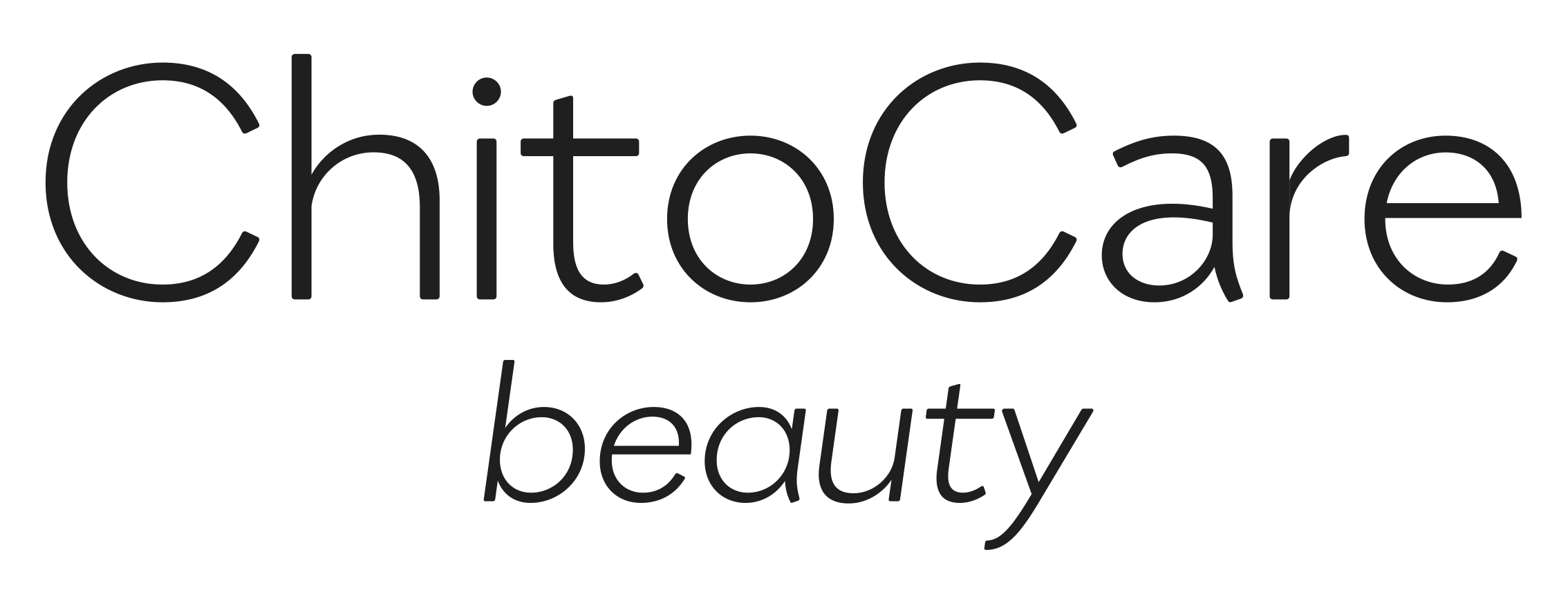
Common Skin Conditions: Eczema
At ChitoCare beauty, we realize that information is an important tool for making better skincare choices. As skin conditions can often be confused with skin type, we highlight four common skin conditions that can affect people of all skin types.
Just like our fingerprints, each person’s skin is unique. Genetic makeup, climate, diet, lifestyle, external aggressors and many other factors affect our skin on a daily basis. Some people have a relatively easy experience with their skin and will show minimal problems throughout their lifetime. Others, however, may encounter skin problems at nearly every stage of their life.
While a lot of the ways in which skin reacts is related to a person’s skin type, which many people share, a specific skin problem, also known as a skin condition or skin disorder, can be developed by anyone, no matter what their skin type. In short, everyone has a skin type, but not everyone has a skin condition.
Skin type versus skin condition
The main difference between skin type and skin conditions is that skin type is mainly driven by one’s genes, alongside other intrinsic and extrinsic factors. Skin conditions, on the other hand, are developed and are considered a more serious skin health issue that require special treatment or professional dermatological help. Skin conditions are typically driven by one’s environment, immune system problems, other diseases, allergies or external irritants, however sometimes they can be inherited, or they can run in families.
Understanding whether any issues your skin has is due to a skin condition and not your skin type, is important for keeping your skin healthy, balanced and thriving. Misunderstanding skin conditions, or being unaware of them, could compromise your skin’s natural defense barrier and trigger further issues, such as inflammation, breakouts, irritation or sensitivity.
Some skin conditions are not curable, or they can fluctuate throughout one’s lifetime. Additionally, they can cause significant psycho-social distress, lower one’s self-esteem or be physically painful. Therefore, once diagnosed, it is important to keep an eye on them to take appropriate action. Most of the time, skin conditions can be alleviated and managed effectively, with professional assistance and the correct care.
Common skin conditions
As each person’s skin is unique, skin conditions can also vary from person to person in terms of causes, triggers, symptoms and treatment. Some skin conditions are rare, while some are common. If you think you might have a skin condition, consult with your healthcare professional or dermatologist, who can correctly diagnose you and offer treatment options. Below we outline some core facts about one common skin condition, eczema.
Eczema
Eczema is the name given to a group of skin conditions that cause itchy, inflamed or irritated skin, often with a red or rash-like appearance. It is the result of an overactive immune system that weakens or damages the skin barrier, resulting in itchy, inflamed or dry skin. While the exact causes of eczema remain unknown, genes and environmental triggers are related to its development. For most people (between 80-90%), the first symptoms appear within the first five years of life, while many people outgrow it by adolescence or adulthood. It is not contagious.
There are seven types of eczema: atopic dermatitis, contact dermatitis, dyshidrotic eczema, neurodermatitis, nummular eczema, seborrheic dermatitis, and stasis dermatitis. Each type of eczema has its own set of triggers and treatment methods, so speaking with a dermatologist or eczema specialist is important, to learn to identify triggers, prevent flare ups and alleviate symptoms with the proper skincare treatment.
Common eczema triggers
- Dry skin
- Sweating
- Certain foods or beverages
- Environmental allergens such as mold, pollen, or dust mites
- Climate or extended exposure to extreme weather conditions, (for example, swampy and hot, or damp and cold)
- Chemicals found in household products, such as laundry detergents, fabric softeners, surface cleaning products and disinfectants
- Certain types of personal care products, e.g., soaps, body washes, facial cleansers, shampoos
- Certain fabrics such as wool, polyester or nylon that can cause overheating, sweating and irritation
While many symptoms of eczema are common, they do vary across eczema type and across people. For example, some people develop only a few eczema symptoms while others develop many, and some children have different symptoms to their parents. While symptoms also vary across skin type and skin colour, the most common one is itchiness.
Common eczema symptoms
- Itching
- Soreness or sensitivity
- Dryness or crusty patches
- Flaky, rough or scaly skin
- Inflammation or swelling
- Skin discolouration
While there is no cure for eczema, the correct skincare routine for eczema-prone skin can help alleviate symptoms and prevent flare ups. Depending on the type of eczema you have, the frequency and severity of your symptoms, a dermatologist or eczema specialist should develop a treatment for your specific case. A basic eczema treatment includes the following actions:
- Prevention: identifying what triggers your eczema
- Moisture: establishing a daily cleansing and moisturizing routine
- Treatment: using over the counter (OTC) or prescription medication consistently and correctly
For topical care of skin with eczema, ChitoCare medical Wound Healing Gel can be applied to any skin area or wound, forming a thin, transparent and breathable film. It reduces the symptoms associated with eczema, such as itching and redness, promoting the skin's natural repair process. ChitoCare Medical Healing Spray may be preferably used on a larger affected skin area, as a thinner film is formed to protect the skin and enhance its moisture control.
___
* If you think you might have a skin condition, consult with your dermatologist. They can accurately diagnose you and offer treatment solutions.


